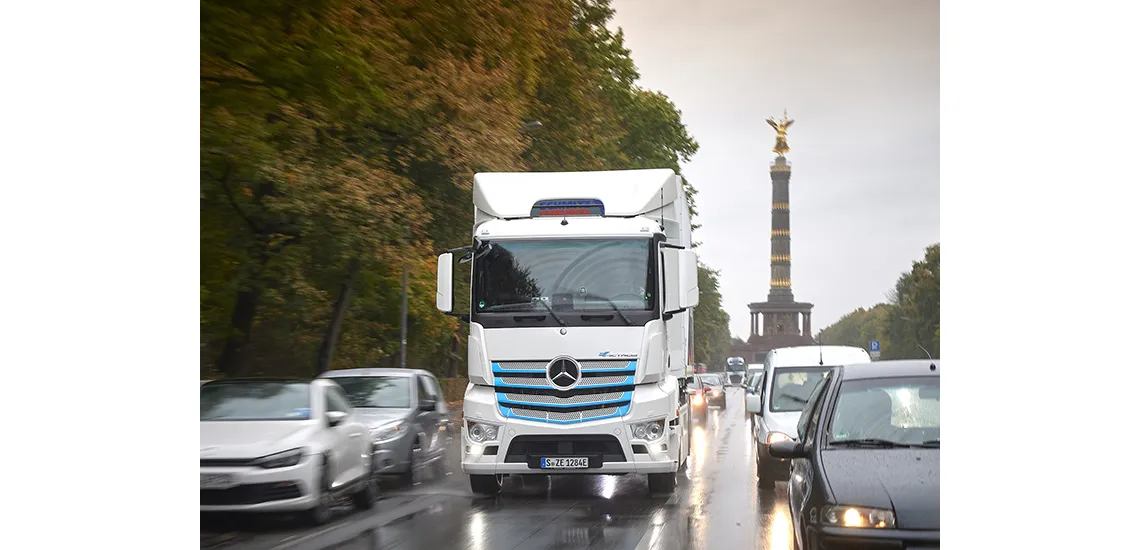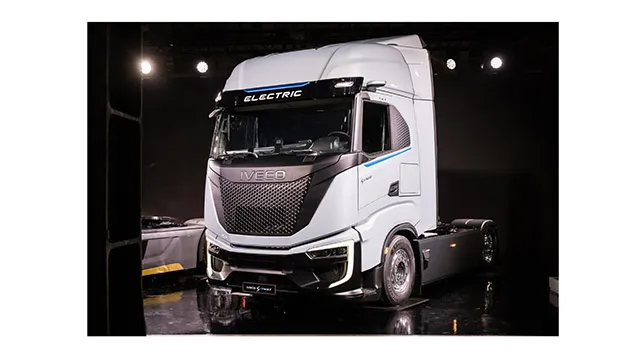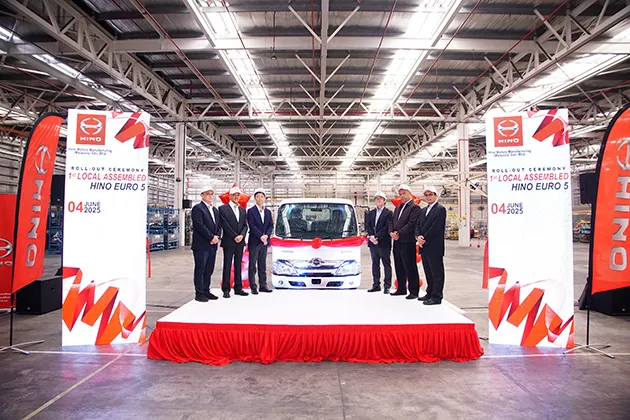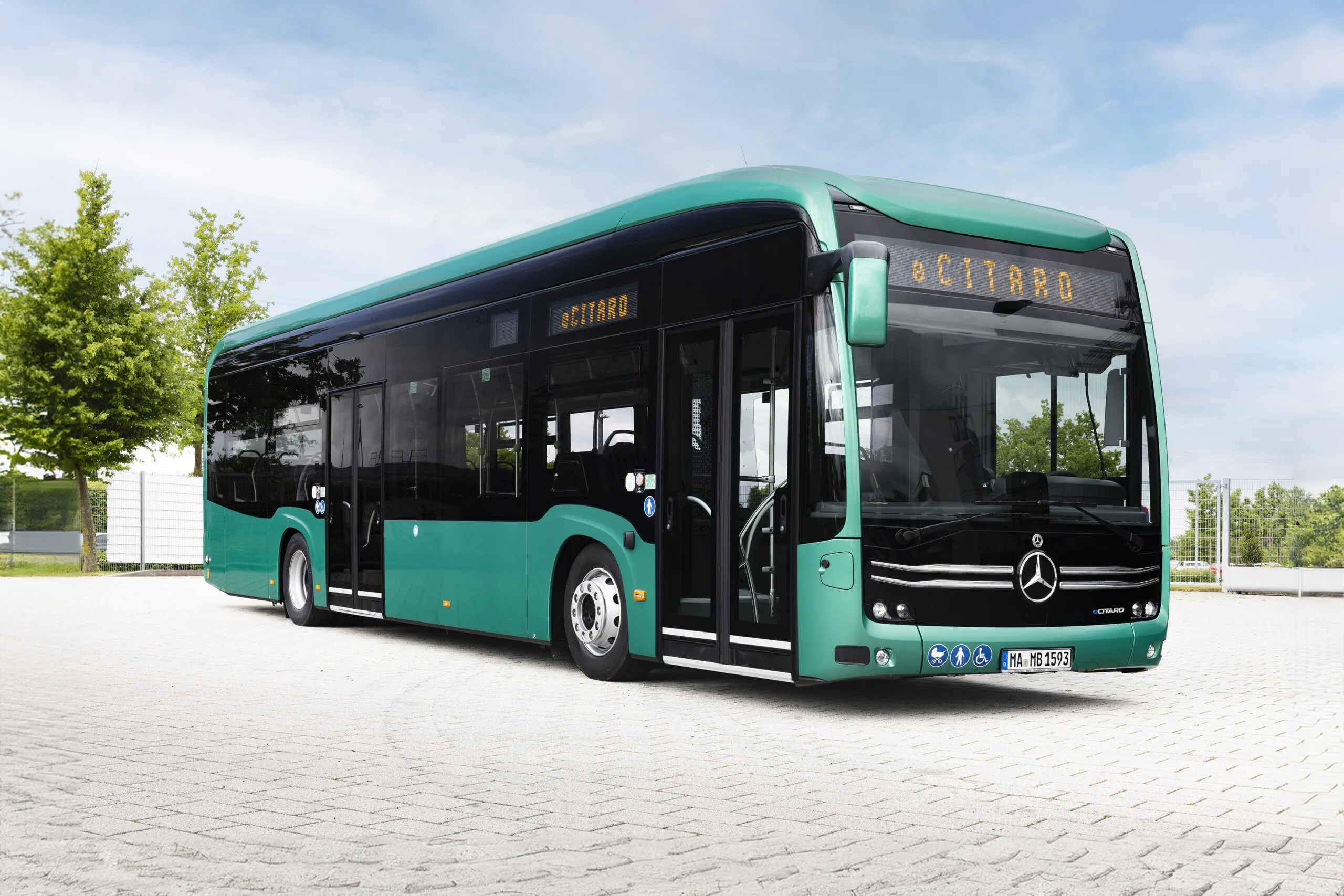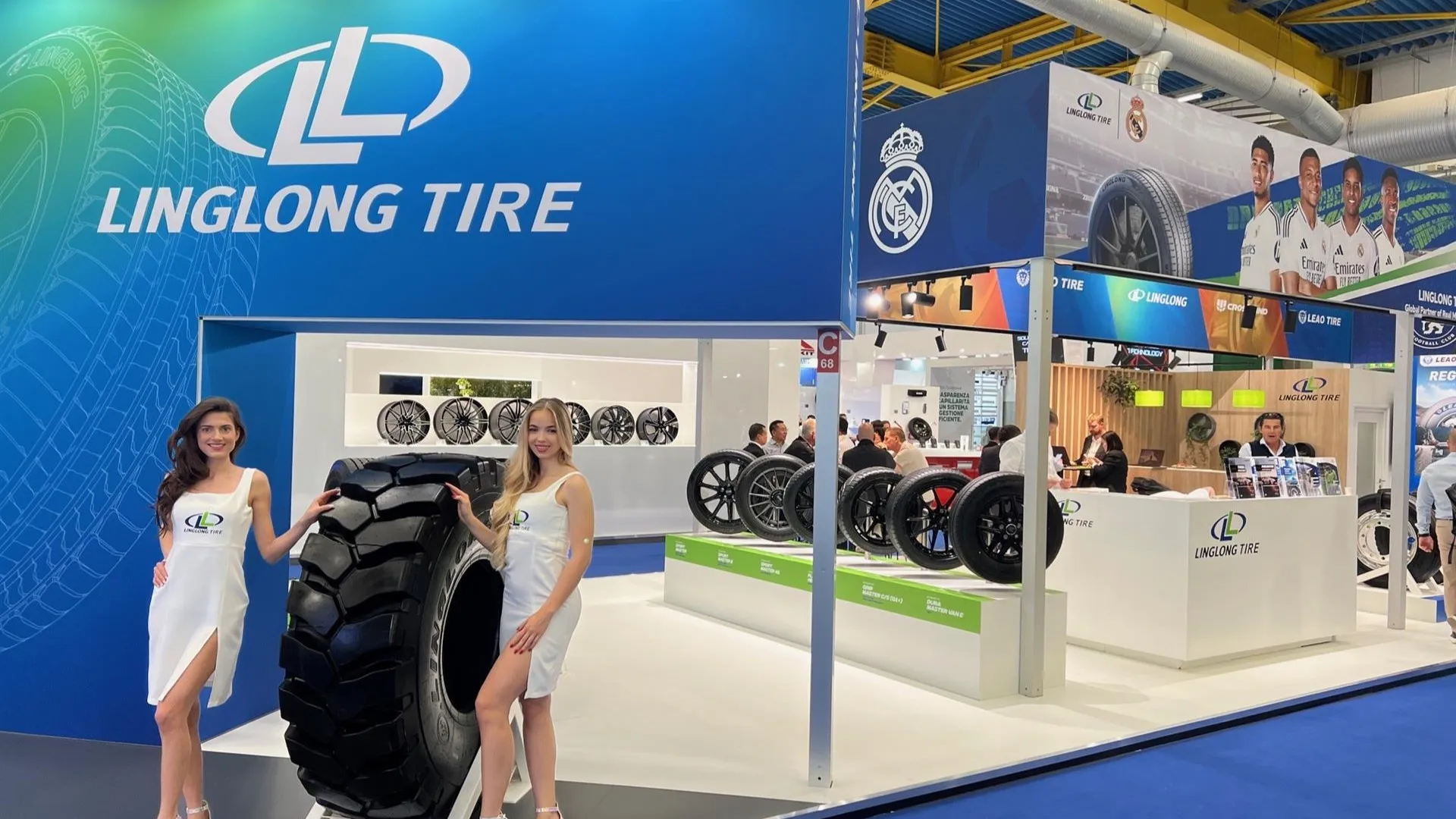The E-Mobility Group of Daimler Trucks & Buses is now launching a worldwide initiative to establish a charging infrastructure for battery-electric trucks. The initial focus is on charging stations installed at the depots of truck customers.
Electric-Truck Charging Infrastructure Initiative Kicks into Gear
Within the framework of the initiative, the E-Mobility Group is bringing together the main players – e-truck customers, power grid operators, energy suppliers, charging hardware manufacturers and charging software providers – thus promoting shared infrastructure solutions for truck customers within the network. The focus of activities is currently on the United States and Europe. Japan is the next market to follow. The first workshops have been taking place for some time now. The first joint pilot projects for setting up charging infrastructure at truck depots have also already been implemented or are in preparation.
The initiative is called “eTruck Charging Initiative” and is part of the E-Mobility Group’s holistic approach to provide truck customers with the best possible entry into e-mobility. The close dialog between the main players is also intended to speed up previously lengthy and complex planning and application processes for network connections.
Gesa Reimelt, Head of E-Mobility Group Daimler Trucks & Buses: “We are taking an active role in driving forward the change towards battery-electric road transport – also beyond our e-trucks and consulting services. To this end, we are now setting the course for the development of the necessary infrastructure together with all those involved.”
“Through our intensive dialogue with customers, we are building up comprehensive expertise in all aspects of the power requirements and infrastructure needs of fleets. In the first step, we find out which power supply is available at a customer’s depot and which operating processes have an influence on power charging. With our newly launched ‘eTruck Charging Initiative,’ we are now translating these findings into suitable offers together. This includes, for example, supporting truck customers in the selection of the energy supplier and of the charging-station provider, as well as providing the appropriate charging software,” Reimelt continued.
The initiative’s measures include the development of standard concepts that cover common charging profiles. Different energy suppliers can use these concepts, significantly reducing their planning time. So far, infrastructure projects have mostly been treated as individual cases. In addition, standardised and optimised forms accelerate the approval procedures for the network operators.
Fast processes mean reduced costs for all involved. Other approaches, such as the best possible design of the interfaces between charging infrastructure, vehicle and grid, as well as the possibilities of controlling the grid load and thus ensuring the – as sustainable as possible – supply of electricity, are also addressed within the initiative. In rural areas and when there is a high demand for electricity, it is also important to ensure charging reliability, which is another of the initiative’s subject areas.
Gesa Reimelt: “From our point of view, depot charging at the truck customers’ depots represents the first and most important step towards entering the world of e-mobility. This means that the current fields of application for electric trucks in connection with urban distribution traffic can already be covered and the infrastructure can be ideally adapted to the logistics provider’s processes, resulting in the lowest possible charging costs.”
In the case of depot charging, the infrastructure is individually tailored to the needs and processes of the respective logistics provider. The use of their own infrastructure usually offers advantages in terms of total cost of ownership (TCO), as no additional operator is involved. There is also no need for time-consuming billing and authentication of authorised vehicles, and a charging possibility can always be guaranteed. The charging procedures are subject to the company’s specifications and the energy costs can be calculated in advance.
Among other things, depot charging is suitable for applications with electric trucks in urban areas, which travel on routes that can be planned and which can be charged overnight or during regular downtimes. In most cases, there is therefore little or no change to the operating procedure.
Launched last year by the E-Mobility Group, the ecosystem for easy entry into e-mobility consists of three areas: Together with the customer, the key question is first clarified for which application profiles and routes electric trucks are already suitable today.
For this purpose, the E-Mobility Group is rolling out the free “eTruck Ready” app, which uses existing driving routes to determine a realistic and meaningful usage profile of electric trucks for customers. The charging processes of electric fleet vehicles are another key factor that must be integrated into the operating process.
For this reason, a further focus of the consulting is on the analysis of the depots and the corresponding conception of the suitable infrastructure including intelligent charging solutions. The third area deals with the optimisation of the total cost of ownership (TCO). The experts of the E-Mobility Group will discuss, among other things, the possibilities of public funding for the infrastructure.

